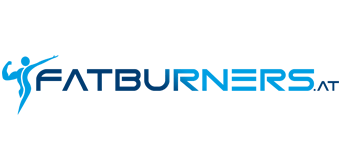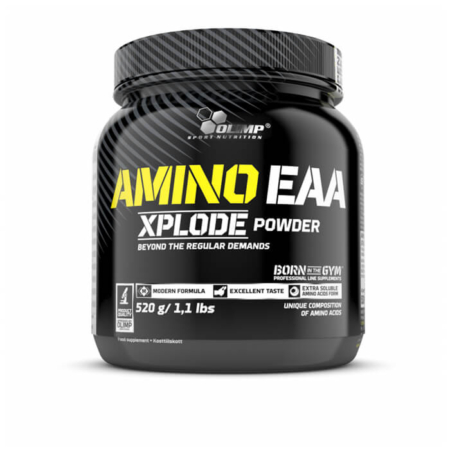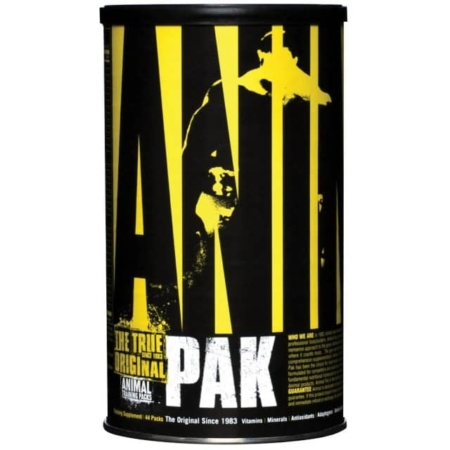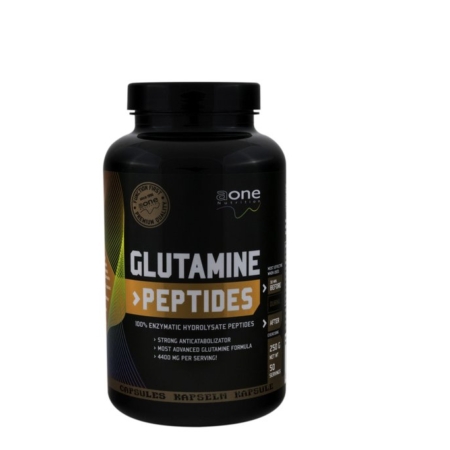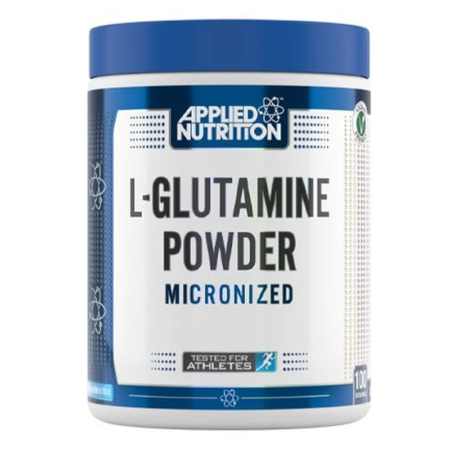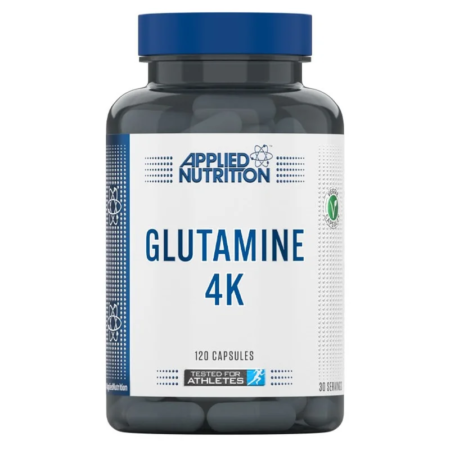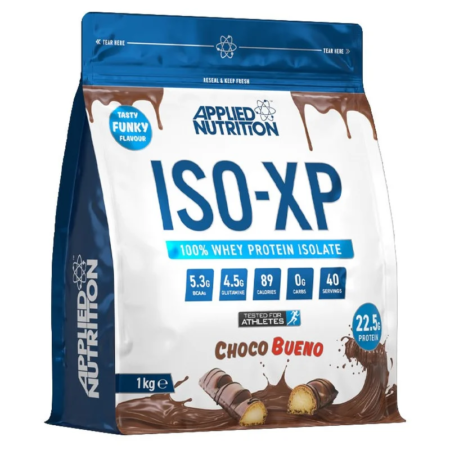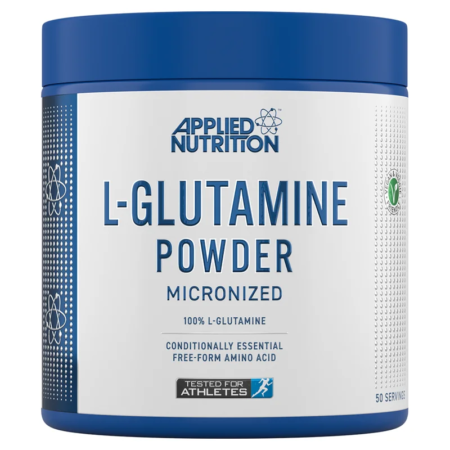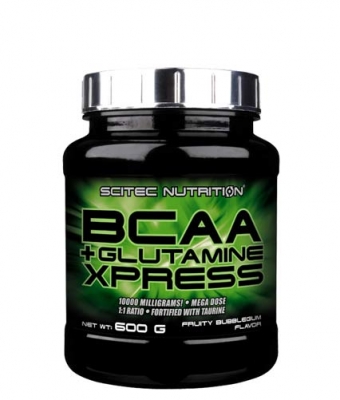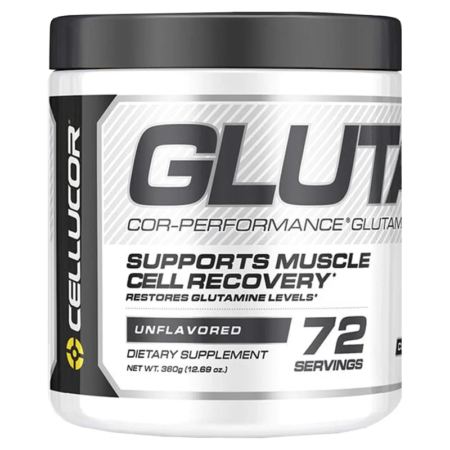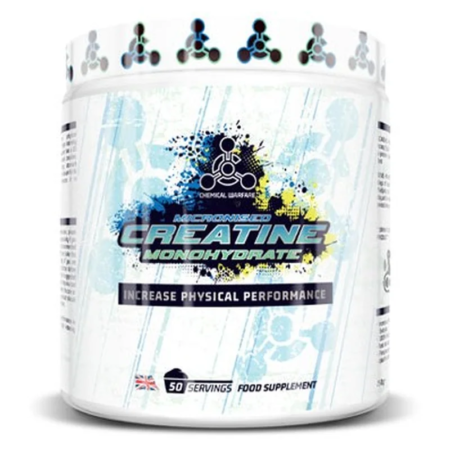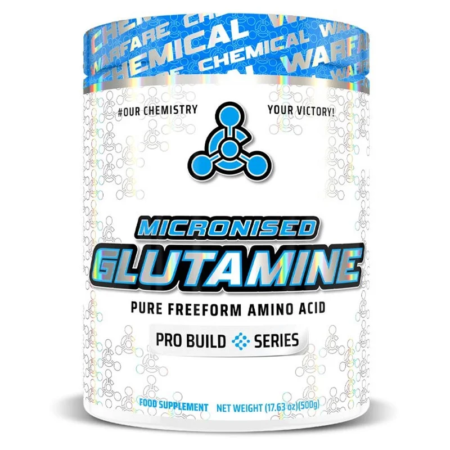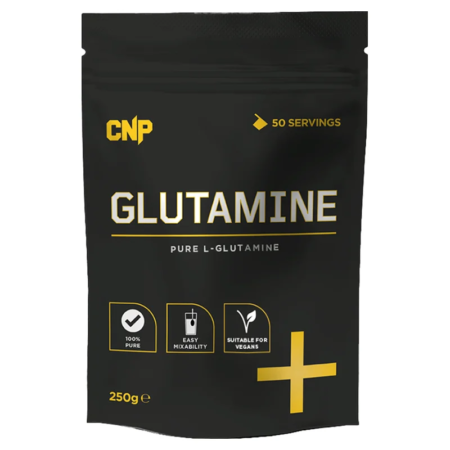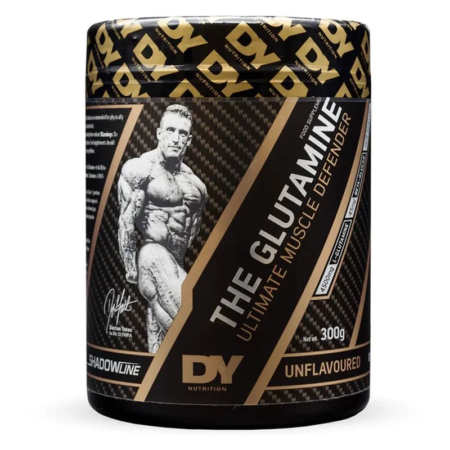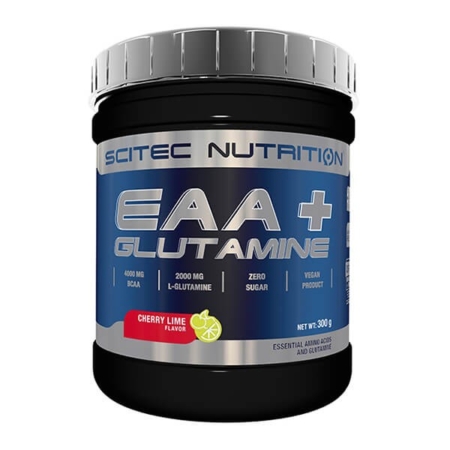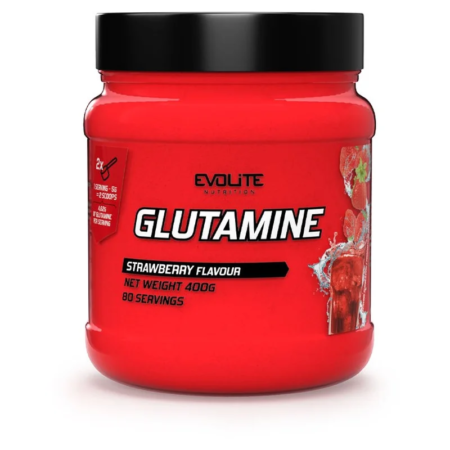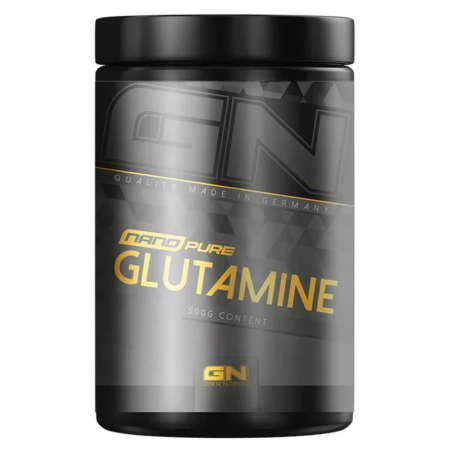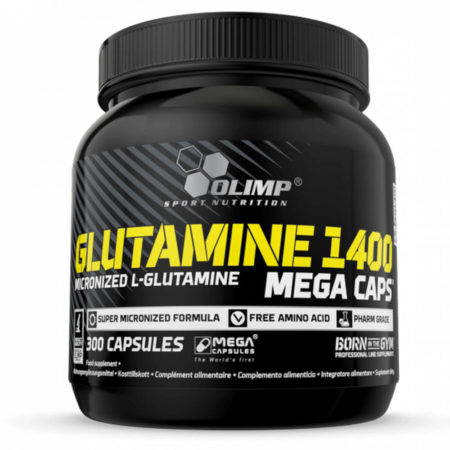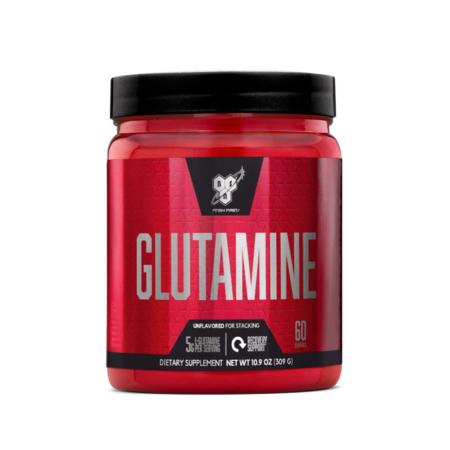Glutamine or L-Glutamine: what ist he difference?
Whenever Glutamine is referred to, actually L-Glutamine is meant. This proteinogenic amino acid that is non-essential to you as a human is produced, for example, in the skeletal muscles, lungs, and brain and also taken in through food.
Glutamine is produced from the L-Glutamine acid in your body by means of the so-called glutamine synthesis. The highest concentration of glutamine can be found inside muscle cells, where most of the synthesis takes place as well. Apart from other processes, it is also responsible for storing water in the cells and causes an increase in cell volume during training. This way the formation of glycogen and proteins in your body is cranked up. With a share of 20%, glutamine is the main component in the pool of free amino acids in the blood plasma. That makes glutamine also an important source of energy.
After operations, in case of serious injuries, burns, or infections, usually a strong decline of L-Glutamine in the body can be observed. That is why L-Glutamine is also considered a conditionally essential amino acid because it is required after operations and in case of burns and serious illness. So your body’s own production of L-Glutamine can be decreased due to illnesses – or stress, too. But Glutamine also plays a key role in the development of muscles. When training intensively, the muscle cells lose glutamine you can provide by taking it in through food or supplements.
Food items containing L-Glutamine
There are many food items containing L-Glutamine in varying amounts. Glutamine can easily be taken in through food – even by vegetarians and vegans, who often struggle with other amino acids like Carnitine contained almost exclusively in meat.
Food items containing a high amount of chemically bound L-Glutamine:
- soybeans
- peanuts
- spelt flour
- lentils
- cheese
- mutton
- quark
- potatoes
Effects of Glutamine
Glutamine takes part in numerous metabolic processes. These include that glutamine plays a key role in building muscle and maintaining muscle mass. But many other important bodily functions and processes also require glutamine.
The most important benefits of Glutamine can bring your body:
- support of the muscle development
- muscle maintenance
- positive impact on the immune system
- improved performance
- enhanced breakdown of ammonia (which is formed during training)
- has an anti-inflammatory effect
- helps improving intestinal functions
Glutamine in sports: muscle building and muscle maintenance
Why do many athletes eat so much quark? Because in addition to protein and other amino acids quark also contains Glutamine. However, at least 300 grams (10.5 oz.) – better 500 grams (17.5 oz.) – of quark should be eaten in order to satisfy the need for glutamine. If you do not like that because of the calories or for other reasons, glutamine supplements can help you providing your body with sufficient amounts of L-Glutamine. Many bodybuilders and athletes realize over the course of their training that they need more glutamine than their bodies can produce on their own, which is why they rely on sport nutrition.
Bodybuilders and anyone aiming for developing muscles like to rely on glutamine when it comes to food supplements. The highest concentration of it can be found in your muscle cells. It fosters an anabolic – that is a developing – state. What is more, L-Glutamine is responsible for storing water in cells and causes an increase in cell volume during training. Your muscles look more tautly! Also the formation of protein in your body gets cranked up.
After an intensive workouts, your glutamine and carbohydrate reservoirs are empty. In order to quickly restore some energy, your body now is in need of glucose. And this is where L-glutamine comes in because: Glutamine can be converted to glucose! That way your organism quickly regains energy without turning to the precious muscle protein as a source of energy. The maintenance of muscle mass can be supported this ways.
Another reason why Glutamine is so popular among athletes is it boosting regeneration. The keyword here is fast replenishment of the glucose reservoirs. Full glucose reservoirs mean more energy for your workout. Instead of dextrose you may use calorie-free glutamine as an energy supplier – which is especially beneficial during diet phases.
Taking Glutamine: what is the right dosage?
You can best learn the right dosage from the manufacturer’s instructions of the respective product. Oftentimes a dosage of 3 to 5 grams (0.1 to 0.18 oz.) two to three times a day is recommended. When should you take glutamine supplements? You can take glutamine in the morning, evening, before or after training. Usually an intake after training or before going to bed is recommended. After the workout and during recovery phases glutamine protects from catabolic reactions, that is the loss of endogenous substances such as muscle mass, and provides for an increased cell volume.
Before going to bed it provides for an optimized regeneration and protects from muscle loss. But even before the training glutamine can protect from catabolism (muscle loss). In the morning after getting up it may be advisable taking in the glutamine supplement in order to close supply gaps that appeared over night.
It is best to take your glutamine supplement with sufficient amounts of water – for example a big glass of water. It is important that you avoid milk when taking in glutamine since that might hinder the resorption.
Side effects of Glutamine
L-Glutamine is a natural substance, non-toxic, and a food supplement tried and tested for several years. Therefore it is considered very safe. You should, however, not take in more than 40 grams (14 oz.) of glutamine. Too high of a dosage may result in erythemas and tingling skin. Possible hypersensitivity reactions can be gastrointestinal complaints, kidney stones containing calcium, unrest, or sleep disturbances. Overdosing as well as an intake during pregnancy and breastfeeding period is – as with most supplements – not recommended! In case of certain conditions – in particular epilepsy, kidney diseases, or bi-polarity – or intolerance you should always consult your doctor first.
Buy Glutamine
Glutamine is available as a powder, capsules, or tablets. But you can also, for example, buy glutamine acid with flavor. You might be asking yourself right now: What is the best glutamine supplement? Unfortunately, there is no easy answer to that since it depends on many personal aspects. Powder can be dosed very precisely and very individually. Also it can be mixed with protein powder. Capsules are handy when traveling. Keep an eye on good quality, a high purity, as well as a high concentration in either case. During your purchase you should attach value to 10 oz. of L-glutamine powder containing at least 5 to 10 oz. pure glutamine. Vegetarians and vegans renouncing gelatin should also pay attention to the capsule casings not being made from gelatin.
As an addition to BCAAs glutamine has in practice shown to be helpful since it can have a positive impact on the anabolic effect – that is the development of muscles.
We will gladly advice you which glutamine supplement is the right one for you!
Our customers are also interested in Ephedrine HCL and our ECA Stack for sale. You should also have a look at our other supplements like Whey Protein and Fatburner Capsules.
Fatburners.at @ Social Media: LIKE & FOLLOW US!!
